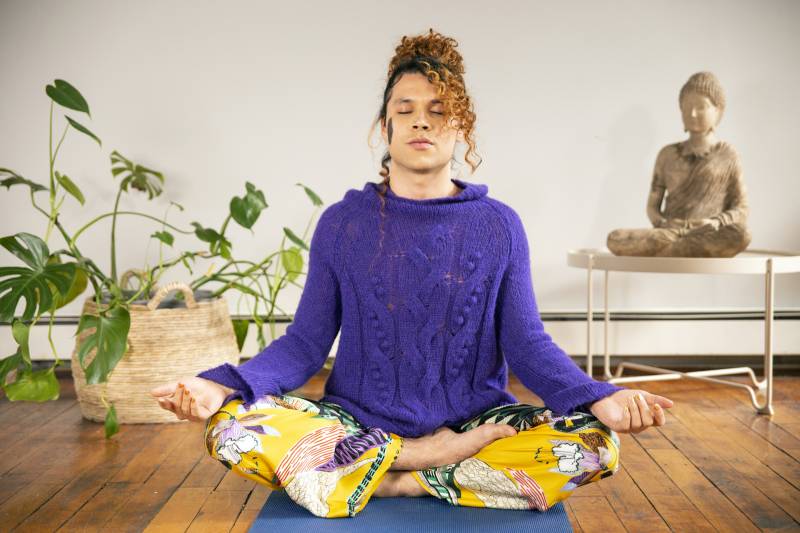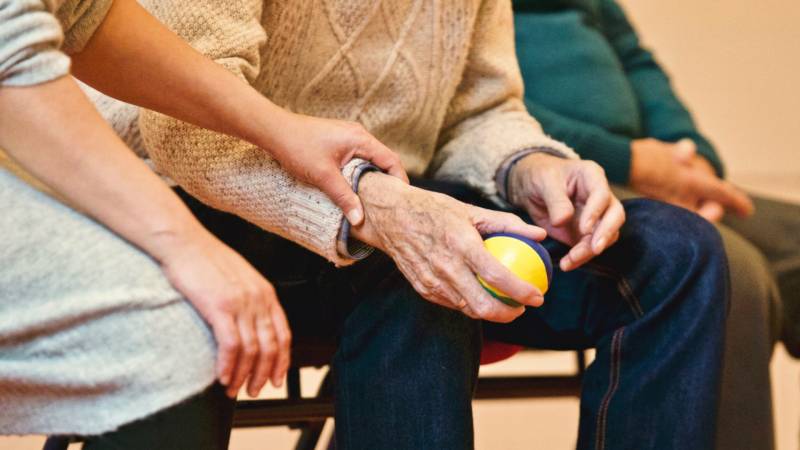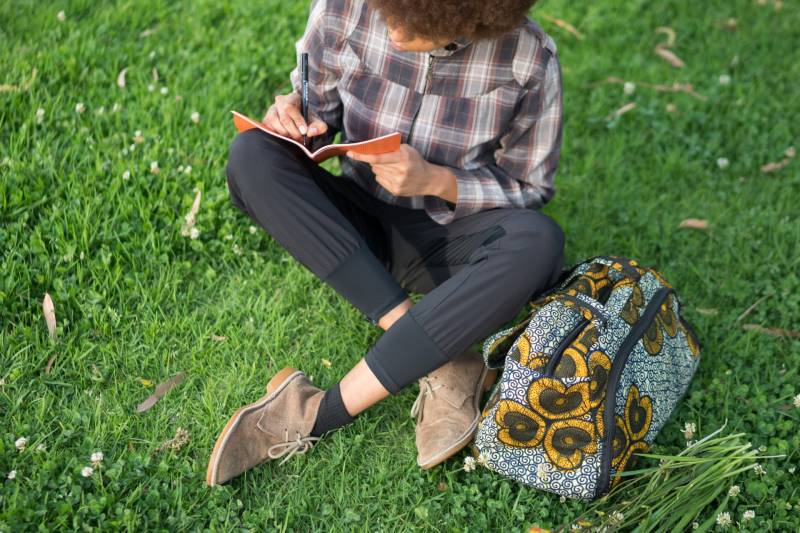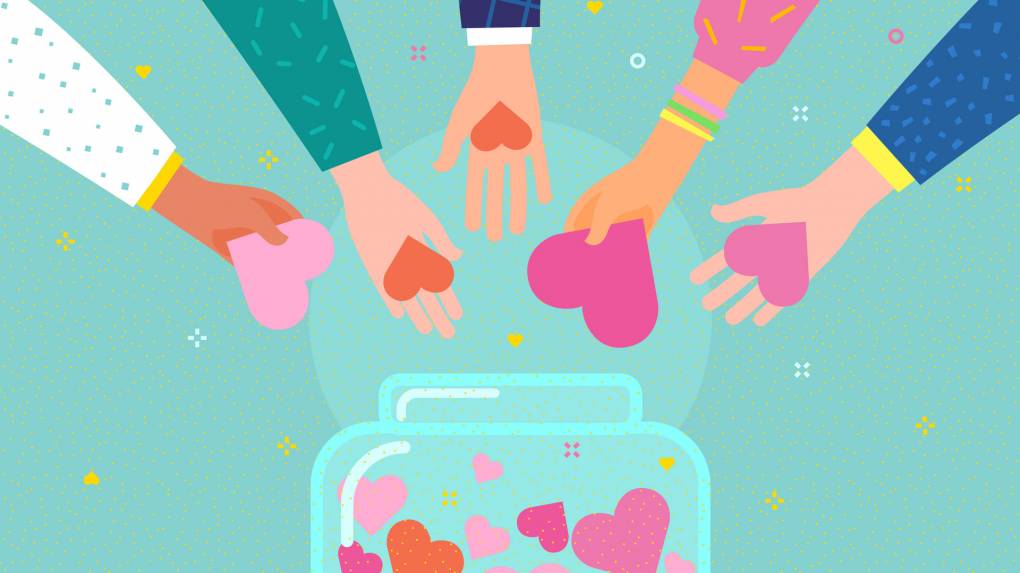Adjusting to the safety measures required to curb the spread of coronavirus can be stressful. And with the Bay Area’s new shelter-in-place ordinance, even those of us who aren’t sick or caring for someone have had to adapt to a much more isolated way of life. The rapidly evolving news cycle—and the wealth of misinformation online—also contributes to the chaos.
Self-Care Tips to Get You Through the New Coronavirus Normal

Self-care is always important for living a healthy and fulfilling life, and in times like these, it’s even more necessary to maintain our mental health so we can show up for ourselves and others. Here are some tips.
Limit Information Intake
Stay informed by tuning into reliable, fact-based reporting, and don’t feel like you have to read every single piece of coronavirus news. Setting limits on your screen time and turning off notifications—even for a couple of hours—can be a healthy boundary.
Mindfulness is Your Friend
Fixating too much on fears about the future can often send us on anxiety spiral, so it’s important to stay present. A simple breathing technique like box breathing (where you inhale for four seconds, pause for four seconds, exhale for four seconds and pause again for four seconds) can slow the heart rate and mitigate your body’s anxiety response. If having a panic attack, a helpful grounding technique to get out of your head and into your body uses the five senses: name five things you can see, four things you can touch, three things you can hear, two things you can smell and one thing you can taste.
“Though the coronavirus is something that’s happening right now, our fears about it are often something not happening to us [in the present moment], and mindfulness can help anchor us,” says psychologist Dr. Juli Fraga, who has written about mental health for KQED.
The positive affirmations in guided meditations can also redirect your mood. Free apps like Insight Timer provide guided meditations tailored to specific themes—and they can be as short as two minutes for those who don’t have a lot of time or aren’t experienced meditators. There’s also a wealth of free guided mediations on YouTube, as well as yoga nidra meditations—which are great for insomnia.
“People worried about their families or loved ones might use something known as the loving kindness meditation,” says Fraga. “It’s used to direct loving kindness towards someone you care about, yourself or the universe.”
Don’t Forget to Move Your Body
Under “shelter in place,” gyms are closed—and an enclosed space where people are sweating and breathing heavily isn’t where you’d want to be right now anyway. But getting up and off your phone or computer is crucial to wellbeing. If you’re not sick or experiencing respiratory symptoms, take walks, runs, hikes or bike rides outside while maintaining a distance of at least six feet between yourself and others.
And once again, take advantage of YouTube as a free resource. It has thousands of videos of yoga, pilates, strength training and HIIT (high intensity interval training) classes to help boost your mood, improve posture and connect with yourself. The website DoYogaWithMe, which has free classes in many different kinds of yoga styles, is also excellent.

Lean on Support Networks—Especially If You Are a Caregiver
The need for community is an essential part of being human, but what do we do if getting together is no longer an option?
Those who are sick or caring for a loved one face even greater challenges when it comes to isolation. Fraga recommends reaching out to our broader support networks. That friend, neighbor, relative or coworker who told you to call if you ever need anything? It may be the time to take them up on that—even if you just need someone to talk to over FaceTime.
If you’re used to always caring for others, remind yourself that “it’s fine to be the receiver of something,” says Fraga.
We all can combat loneliness by scheduling calls with loved ones, and checking in with our elderly family members and neighbors. And if you’re cooped up at home with too many people, a house meeting to find out when people plan to be out for walks so you can get alone time can help.
As for parents with kids home from school? “That’s another call for community outreach,” Fraga says, adding that they should look to their school communities for support—for example, videoconferencing while doing homework.
Change Up Your Routine
With most workplaces and schools closed for weeks, doing small, simple things to change your routine can help break up the humdrum of the day-to-day. Take a different route when going on a walk; wear something funky; put on a different playlist; go about your chores in a different order; try a new craft, book or exercise.
“The more we do something, it loses its luster,” says Fraga. Even something as simple as drinking your coffee out of a different mug can help with boredom.
Occupy Your Brain
There’s only so much Netflix one can watch, and downtime indoors means you’re going to have to get creative with your activities. Draw, collage or paint. Check out new music or return to a familiar favorite. Knit or crochet. Play a video game, mobile game or do a crossword. Borrow an ebook or audio book from the library using the free Libby app. Listen to podcasts while you clean—there are plenty that aren’t about coronavirus news, like KQED Arts’ Rightnowish, which gives a hopeful glimpse into the lives of artists making change in their communities.

Express Yourself
Journaling can be a healthy outlet for getting anxieties off our chests or writing down gratitude lists to remind ourselves that there are still things to be thankful for. But, Fraga cautions, “sometimes journaling can bring up feelings more acutely that we might not have been in touch with, so it can be useful to set a timer.” Playing an instrument, dancing and making art can all be helpful tools for channeling our emotions, as well.
Talk to a Professional
The Center for Somatic Psychotherapy and the Open Path Collective provide sliding scale therapy in the Bay Area, and many therapists are switching to videoconferencing since meeting up in person isn’t an option right now. Online therapy services like Talkspace are available as well.
Help Out Where You Can
Artists, service workers, small business owners and other kinds of professionals are losing out on income because of coronavirus—and so far, the federal and state government’s response has been limited.
Buy your favorite local artists’ merchandise or music (if their music is on Bandcamp, you can pay more than the listed price if you feel generous). If you have a ticket to a canceled event, consider opting not to take a refund so the artist can still benefit. Donate to GoFundMe campaigns and organizations that work with our unsheltered neighbors.
By helping others, you’re also helping yourself. “Donating or helping out are great ways to help us feel in control and to generate positive feelings like we’re contributing to what’s good,” Fraga says.





